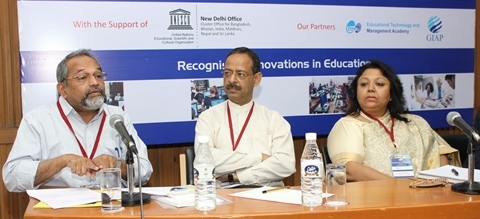
By Anil Swarup, Former Secretary, School Education and Literacy, GoI
The Union finance minister has announced, as a part of the stimulus package, that the coal sector would be opened up and coal blocks put up for auction for commercial mining. Will it be impacted by the ?Rai effect??
It was 2012. Visuals of Rekha Gupta, the deputy comptroller and auditor general, flashing a report before the media are etched in the memory of many. There were alleged scams all around. The media was lapping it up. No one had the time or the inclination to examine the details. In any case, the comptroller and auditor general (CAG) was supposed to go into the details. If he came to a particular conclusion, it was assumed that he had gone into the details.
The CAG had concluded that there was a loss of more than Rs 1.7 lakh crore in the allocation of coal blocks. Subsequently, the Supreme Court put its stamp on what the CAG had said. In fact, it went far beyond what was allegedly found by the CAG. Any comment thereafter would have been more than mere sacrilege. It would have been contempt. However, after the dust created by this legitimised sound and fury had settled and after it had created a sufficiently wild political storm to sweep one party out and the other one in, there were indeed intrepid people around who sought to explore the truth.
It took the courage of a former Coal Secretary, P C Parakh, to bare it all. He went on to examine these issues at length in two seminal books, Coal Conundrum and Crusader or Conspirator? The world was getting to know the truth behind the so-called damage that was done. The focus, however, in these books was not so much on the CAG but the Supreme Court judgment. Subsequently, the findings of the CAG that were later termed as ?Coal Scam? were questioned in stray articles. The extent of the ultimate damage by such a report will continue to be debated for some time. The legal legitimacy of the report stood confirmed after the Supreme Court put its stamp of acceptance on it, but certain factual and ethical questions still remain unanswered:
1. Did the CAG come to the wrong numbers while determining the loss to the public exchequer?
2. Was there a need to make a public spectacle of what he thought was right?
3. Did the CAG?s actions create an environment where decision-making became even more difficult?
These issues have been examined at length in my book Not Just A Civil Servant. And the conclusions arrived at in the book would not have pleased the person who donned the mantle of Chief Auditor of the country. Vinod Rai had rightly claimed in his book, Not Just An Accountant, that he wasn?t just an accountant. However, he in fact reported just like an accountant, with devastating consequences. His miscalculations virtually ruined the coal sector. There were hardly any takers for the coal blocks that were auctioned after the first couple of rounds.
The tragedy was compounded as no civil servant was prepared to accept realistic bids offered in a number of coal blocks because they were below the calculations made by the CAG, based on assumptions that did not make sense. The country had celebrated the tamasha when the revelations were made by him, but India continues to suffer the consequences of what can only be called the fantasy he indulged in.
There wasn?t anything illegal done by the Vinod while giving his Rai (advice) as CAG but the real issue is whether it was ethical for him to come to conclusions without going into the details of each mine instead of taking a convenient method of using averages. Shouldn?t he have gone into the financials of each mine? By not doing so, the CAG appeared to be merely on a fault-finding mission, not a mission to unearth the truth.
Greater damage was done to the psyche of civil servants. This damage happened because of the spectacle made out of half-truths, which are more difficult to sift and dangerous because the halves are so intermixed. Here too, by going to the media and highlighting the wrong, Vinod Rai had, legally speaking, done no wrong. However, was he ethically correct in grandstanding in a manner that is not expected of a civil servant? Should he or the deputy CAG have refrained from making a spectacle out of an alleged ?scam??
The ?Rai effect? was quite devastating. Officers started refraining from committing themselves on the files. They were playing safe. Further, it was hoped that coal production would increase if the blocks were auctioned. This was not so. In fact, coal production from auctioned mines was well below the estimated amount. The situation in India eased because of an unprecedented increase of coal production by Coal India Limited that had nothing to do with the CAG or his report. And finally, the CAG?s report led to the conviction of officers who had justifiably enjoyed a spotless image.
The CAG obviously cannot be blamed for all of this, but he set the tone for devastating consequences.Only time will tell whether the auction of coal blocks for commercial mining will be impacted by the ?Rai effect?.
(With excerpts from the author?s forthcoming book Ethical Dilemmas of a Civil Servant. Email: swarup8@yahoo.com)








